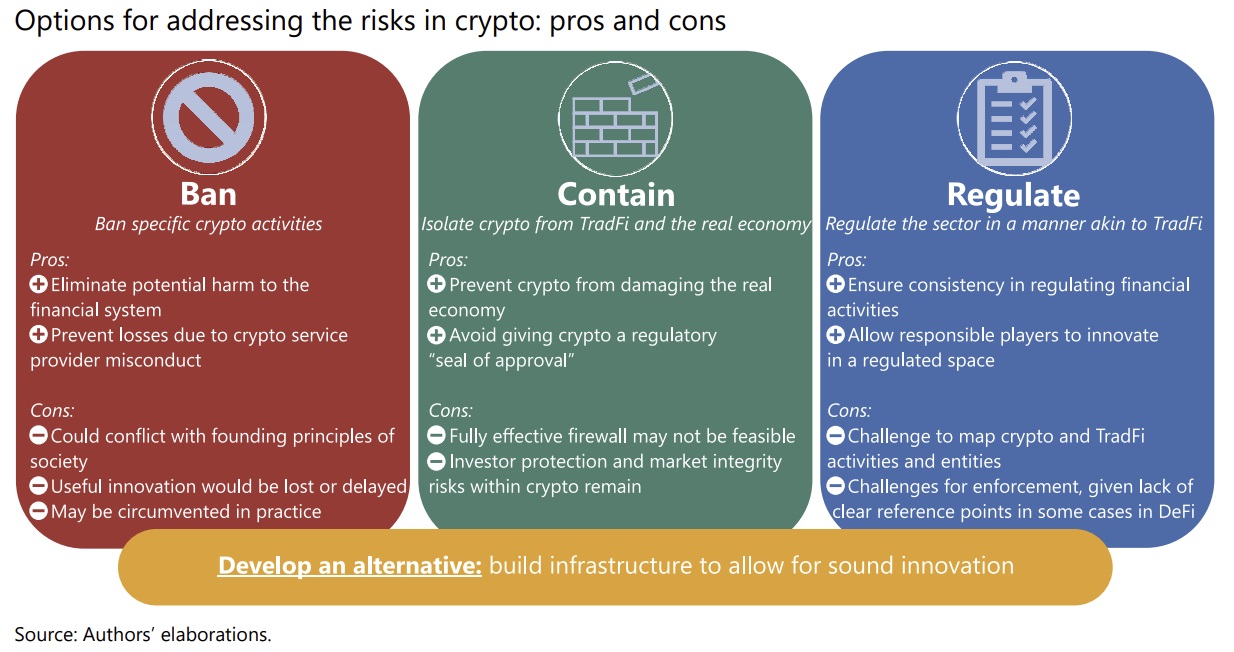
Economists on the Bank of International Settlements (BIS) have advisable three insurance policies regulators worldwide may undertake so as to cope with the dangers posed by cryptocurrencies. “Authorities can now consider a variety of policy approaches and at the same time work to improve the existing monetary system in the public interest,” they suggested.
BIS Economists Discuss Crypto Policies
The Bank of International Settlements (BIS) revealed a bulletin final week titled “Addressing the risks in crypto: laying out the options.”
Authored by BIS economists Matteo Aquilina, Jon Frost, and Andreas Schrimpf, the report discusses the dangers related to cryptocurrencies and the varied choices out there to regulators and central banks for addressing these dangers.
The authors outlined “three potential lines of action.” The first is to “ban specific crypto activities.” Another choice is to “isolate crypto from tradfi [traditional finance] and the real economy.” The third is to “regulate the sector in a manner akin to tradfi.” However, the report clarifies that the three choices aren’t mutually unique and could possibly be “selectively combined to mitigate the risks emanating from crypto activities.”

While noting that crypto markets “have experienced a remarkable series of booms and busts, often resulting in large losses for investors,” the BIS economists concluded that “these failures have so far not spilled over to the traditional financial system or the real economy.” Nonetheless, they cautioned:
There is not any assurance that they won’t accomplish that sooner or later, as defi (decentralized finance) and tradfi develop into extra intertwined.
“Authorities can now consider a variety of policy approaches and at the same time work to improve the existing monetary system in the public interest,” the BIS report concludes.
What do you concentrate on the BIS economists’ crypto-policy suggestions? Let us know within the feedback part under.
Image Credits: Shutterstock, Pixabay, Wiki Commons
Disclaimer: This article is for informational functions solely. It is just not a direct supply or solicitation of a proposal to purchase or promote, or a suggestion or endorsement of any merchandise, providers, or corporations. Bitcoin.com doesn’t present funding, tax, authorized, or accounting recommendation. Neither the corporate nor the writer is accountable, straight or not directly, for any harm or loss brought on or alleged to be brought on by or in reference to the usage of or reliance on any content material, items or providers talked about on this article.



